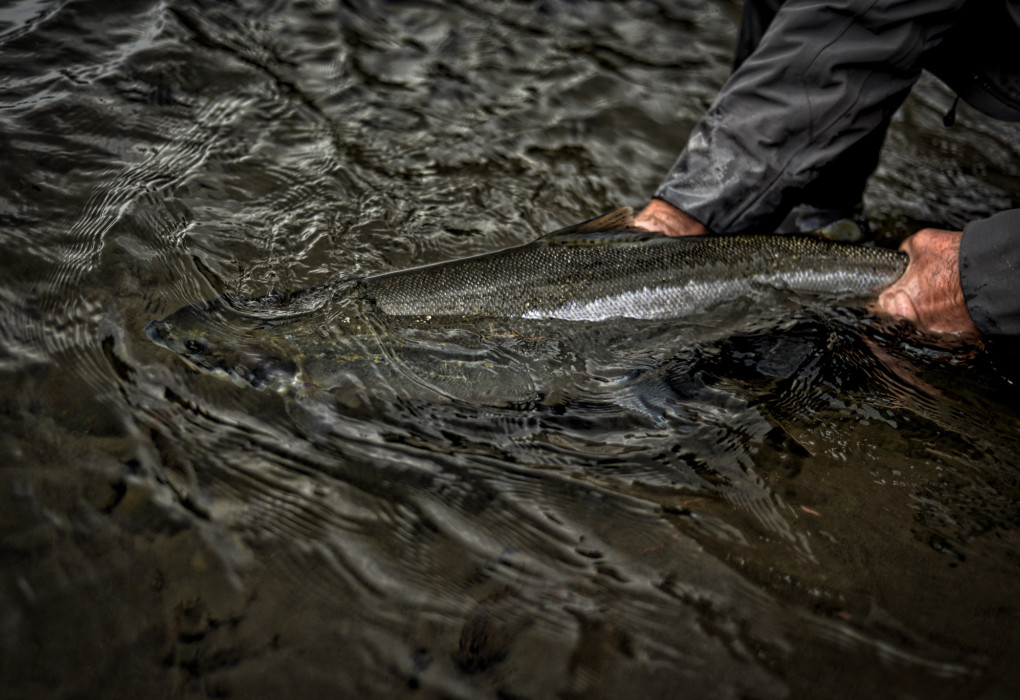A Path Forward: Strategic Reform for ODFW Funding
This concludes our series examining ODFW funding challenges and Native Fish Society's recommendations for reform. Read the other parts of this series here. For more information on our legislative advocacy, please contact Jennifer Fairbrother, Legislative & Policy Director at Native Fish Society.
Building on our analysis of ODFW's funding challenges and the lessons from the Oregon Coast Coho recovery success, Native Fish Society is advocating for a strategic approach to ODFW funding that prioritizes both financial sustainability and ecological outcomes. Throughout this legislative session, we've presented lawmakers with a framework for reform that could transform how Oregon manages its precious fisheries resources.
Our Recommendations for Strategic Reform
1. Develop a Science-Based Strategic Transition Framework
Oregon needs a clear, science-based framework to prioritize watersheds for management focused on self-sustaining wild fish production rather than hatchery fish production. This framework would begin by evaluating watersheds for their climate resilience and current contribution to fisheries, with initial focus on coastal systems, which are largely free-flowing, where the potential for nearer term recovery may be greatest.
The framework should include a thorough analysis of the approach successfully implemented to recover Oregon Coast Coho salmon, identifying the key elements that contributed to that success and evaluating how those strategies might be transferred to other species and watersheds. From there, the state could prioritize watersheds based on their potential to support self sustaining wild fish populations in both the near and long term.
This approach would allow ODFW to detail investment priorities for habitat restoration, barrier removal, and other actions that support wild fish recovery in priority watersheds. Rather than spreading limited resources thinly across all systems, this strategic prioritization would ensure that investments yield the greatest possible return for conservation and fishing opportunities alike.
2. Implement Comprehensive Budget Reform
ODFW's budget allocation needs fundamental reform to support the strategic framework described above. This means reallocating resources to significantly increase investments in conservation and recovery actions, with particular focus on designated wild fish abundance watersheds.
Within these priority areas, investments should focus on green infrastructure, including habitat restoration, barrier removal, and streamflow enhancement. These investments not only support fish recovery but often provide multiple benefits for community resilience, water quality, and climate adaptation.
The agency also needs to take a more strategic approach to hatchery facility investments, basing decisions on climate resilience, economic contributions, and return on investment rather than simply maintaining all facilities regardless of their performance or future viability. With $230+ million in deferred maintenance needs, continuing the status quo is simply not an option.
3. Target New Revenue Sources Strategically
Any new revenue generated through license fee increases, the proposed Transient Lodging Tax, or other sources should support strategic priorities rather than simply maintaining the status quo. This means ensuring that funds are directed toward the most effective programs and initiatives based on scientific evidence and proven results.
Without this strategic direction, new funding could perpetuate the existing imbalance in resource allocation and miss the opportunity to transform ODFW's approach to fisheries management. By directing new revenue toward evidence-based conservation strategies with demonstrated success, like those used in the Oregon Coast coho recovery, we can ensure that public resources yield the greatest possible benefit for Oregon's fish, wildlife, and people.
By implementing these recommendations, the legislature can ensure that ODFW is equipped to effectively manage Oregon's fish and wildlife resources for the benefit of present and future generations. The path forward requires both adequate funding and the wisdom to invest those resources strategically in a way that supports the values and aspirations Oregon has for a future of self-sustaining wild fish, healthy rivers, and strong communities.


